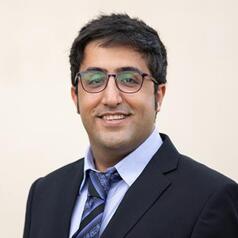
Nima Izadyar
Lecturer, Victoria University
Nima Izadyar is a Lecturer with the School of Built Environment, College of Sport, Health and Engineering (CoSHE)., Victoria University. His Field of Research is in Building Science and Techniques, focusing on energy-efficient buildings, ventilation, indoor environment quality, Computational Fluid Dynamics, Building Surveying, and renewable energy.
Less ![]()
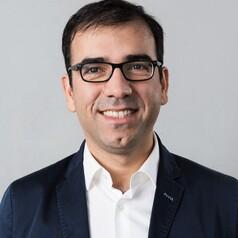

Nina Dombrowski
Postdoctoral Fellow, University of Texas at Austin
I am a postdoctoral researcher at the University of Texas Marine Science Institute in Port Aransas. My research aims to understand the lifestyle of marine bacteria using the most recent “omic”-techniques. More specifically, my current project tries to unravel the metabolic capacities present in bacterial genomes and their metabolic potential. One topic I am working on deals with bacteria enriched during the Deepwater Horizon oil spill, addressing the question how bacteria cope with oil contamination.
I am a biologist with a background in molecular biology. More specifically, I graduated in plant genetics and during my PhD I obtained an additional background in microbiology to better understand how microbes and plants interact. My current goal is to gain a better background in bioinformatics to better be able to tackle the research questions I am interested in.
Currently, I want to understand:
What are the microbes that can be found in marine ecosystems?
How can we use “omics” to uncover novel bacterial lineages?
What are their genomic and metabolic features?
Where I come from:
I did my PhD (just finished this year, in 2015) at the Max-Planck Institute for Plant Breeding Research in Cologne. I investigated how rhizosphere and root-bacterial communities interact with Arabis alpina and two Brassicaceae plant species. I worked on 16S rRNA gene community profiling and also isolated numerous bacteria. The research questions of my PhD were (in a simplified way):
How are bacterial communities affected by their surroundings/ what determines how bacterial communities assemble on plant roots
(i.e. plant species, soil type, flowering time…)?
What is the effect of synthetic bacterial communities on plant growth?
Less ![]()
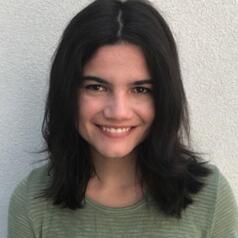
Nina Flores
Ph.D. Student Researcher in Environmental Health, Columbia University
I graduated in Spring 2020 with my B.S. Computational Biology from the University of Texas at Austin. In Fall 2020, I entered the PhD program in Environmental Health Sciences at Columbia University Mailman School of Public Health and expect to graduate in the Summer of 2025
Less ![]()
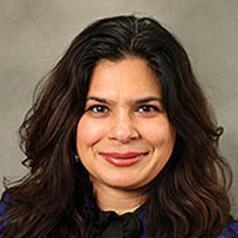
Nina Mahmoudian
Associate Professor of Mechanical Engineering, Purdue University
Dr. Nina Mahmoudian's team develops innovative practical solutions for control of individual and multiple autonomous vehicles in harsh dynamic environments, addressing challenges that currently limit the use of autonomous vehicles in unknown complex situations.
Research Interests
Robotics
Marine Robotics
Unmanned Systems
Energy Autonomy
Systems Design
Coordination and Controls
Less ![]()
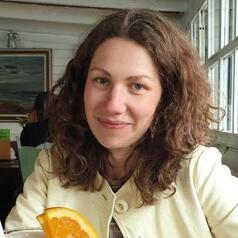
Nina Serova
Research Officer & PhD Candidate in Anthropology, UNSW Sydney
Nina is a PhD Candidate in Anthropology at the University of Melbourne. She is also a Research Officer at the University of New South Wales, working on the Gaawaadhi Gadudha project.
Less ![]()

Nina Sivertsen
Dr Nina Sivertsen is an Indigenous Sámi woman living and working on Kaurna Lands in Australia. She holds a position as Senior Lecturer (Nursing), Flinders University, and Associate Professor, Arctic University of Norway. Her academic work encompasses curriculum design and implementation, with cultural responsiveness in the centre to positively engage students in learning about First Nations health.
In her research, she focuses on community and health systems research in partnership with First Peoples and contributes to restorative policy and practice, especially around women’s health in a socio-political context of assimilation and colonisation. She works in inter-Indigenous settings together with First Nations health professionals from around the world to improve healthcare and health outcomes for all First Nations people.
Nina’s work in the nexus of Indigenous women’s identities, culture, health, and education has led to international recognition as evidenced by her partnerships in Norway, Canada and Australia. She is the recipient of numerous awards; amongst them the 2021 Women in Innovation Award, the 2020 Vice-Chancellor’s Award for Innovation in Teaching, as well as being a finalist of the 2021 AFR National Teaching Excellence Awards.
Dr Sivertsen is an active member of many community organisations and academic committees providing space for Indigenous voices within strategic planning, governance, and curriculum. She works with research higher degree students to create new knowledge and build capacity enabling students to fulfil their potential as independent academics and researchers of the future.
Less ![]()

Nina Sylvanus
Associate Professor of Anthropology, Northeastern University
Nina Sylvanus is an associate professor of anthropology at Northeastern University.
She is the author of 'Patterns in Circulation: Cloth, Gender and Materiality in West Africa' (University of Chicago Press). The book tells the rich story of Dutch wax cloth, its global circuits of production and design while highlighting the important role of West African women as agents of taste and history in this global story.
Less ![]()

Nina Thomas
Assistant Professor of Pulmonary Sciences and Critical Care, University of Colorado Anschutz Medical Campus
Nina Thomas MD specializes in Pulmonary Disease and Critical Care Medicine at UCHealth Pulmonary Nodule Clinic
Less ![]()
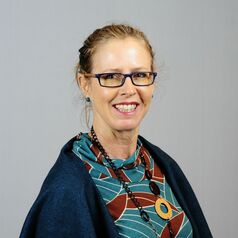
Nina Van Dyke
Principal Research Fellow at the Mitchell Institute, Victoria University
Since receiving my PhD in 2000, I have worked in research and policy in the areas of public health and education for academic institutions, not-for-profits, and private research companies in the United States and Australia. I have particular interests and expertise in preventive health, survey methodology and research with and about young people.
Less ![]()
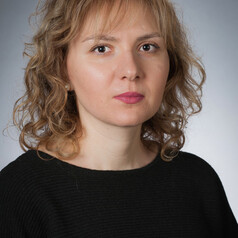
Nino Antadze
Associate Professor, Environmental Studies, University of Prince Edward Island
Dr. Nino Antadze is an Associate Professor of Environmental Studies. Dr. Antadze studies planning processes of energy facilities and issues associated with energy poverty. Dr. Antadze earned a PhD in urban and regional planning from the University of Waterloo, Canada. She also holds an MSc in Environmental Management and Policy from Lund University, Sweden and an MSc in Environmental Sciences and Policy from Central European University, Hungary.
Less ![]()
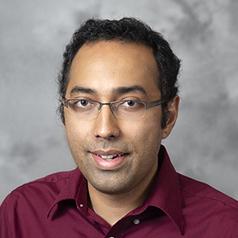
Niranjan Shivaram
Assistant Professor of Physics and Astronomy, Purdue University
Research in my group is focused on using coherent extreme-ultraviolet and soft x-ray light generated by the process of high harmonic generation (HHG) to study electron dynamics in atoms, molecules and materials on femtosecond to attosecond time scales. We use the HHG source in combination with wavelength tunable laser pulses from an optical parametric amplifier to obtain time-resolved information using multiple probing schemes. Current focus is on studying ultrafast dynamics near conical intersections in molecules using a new approach based on Optical Kerr-effect Spectroscopy. This will be complemented by photo-electron spectroscopy experiments using a velocity-map imaging spectrometer. In addition to this, we are interested in using X-ray Free Electron Laser sources such as the Linac Coherent Light Source (LCLS) to study ultrafast dynamics in molecular systems.
Less ![]()

Nirav Pandya
Associate Professor, Pediatric Orthopaedics and Sports Medicine, University of California, San Francisco
Dr. Nirav K. Pandya MD, a pediatric orthopedic surgeon and sports medicine specialist within the UCSF Dept. of Orthopaedic Surgery, is Vice-Chair of Pediatric Operations and Section Chief of the Division of Pediatric Orthopaedics. Dr. Pandya joined the UCSF Department of Orthopaedic Surgery in 2012. His areas of interest include sports medicine, arthroscopy, and pediatric trauma as well as general pediatric orthopaedics.
Originally from Chicago, Dr. Pandya received his undergraduate degree from the University of Chicago where he was elected to the Phi Beta Kappa honor society. While at the University of Chicago, Dr. Pandya was a member of the track and field team, and was elected captain his senior year. He remains one of the top 10 triple jumpers in the school’s history. He then received his medical degree from the University of Chicago Pritzker School of Medicine.
While in medical school, he served as an assistant coach for the University of Chicago track and field team, coaching several national qualifiers in the long and triple jump. Dr. Pandya then went on to complete his orthopaedic surgery residency at the Hospital of the University of Pennsylvania in Philadelphia. He served as academic chief resident his final year, and was the recipient of the DeForest Willard Award for outstanding performance. He then completed a fellowship in pediatric orthopaedic surgery at Rady Children’s Hospital in San Diego where he was awarded the Lena Sefton Clark endowed fellowship award, and received further training in general pediatric orthopaedics, pediatric sports medicine, and hip preservation surgery.
Dr. Pandya has authored over 60 peer-reviewed publications and multiple book chapters, and speaks regularly at national conferences.
Dr. Pandya also co-hosts 6-8 Weeks: Perspectives on Sports Medicine. This podcast presents the people and stories behind sports medicine at UCSF and our community of learners.
Less ![]()

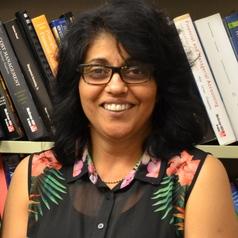
Nirmala Nath
Senior Lecturer, School of Accountancy, Te Kunenga ki Pūrehuroa – Massey University
Nirmala came to Massey from Waikato University where she taught part-time. Prior to this, she taught at the University of South Pacific in Fiji. She researches in the areas of performance management systems, public sector performance audits and accountability, qualitative research methods and hermeneutics. Her research has a management accounting focus.
Less ![]()
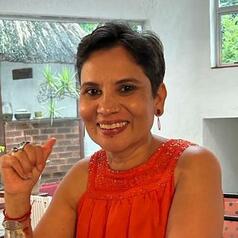
Nirvana Pillay
Visiting Researcher Wits School of Public Health, University of the Witwatersrand
I currently hold a Visiting Researcher position at the School of Public Health, University of the Witwatersrand (Wits). I am also a Director of the Sarraounia Public Health Trust, a non-profit research consultancy. Between 1995 and 2005 I held Lecturer positions first at the Department of Sociology, UKZN and and then Wits. I left the academy to consult in the areas of health and development, which I continue to date. From 2015-2019 I completed a PhD in Public Health at Wits and continue to work at the intersection of research and it's translation into policy and practice. As a visiting researcher, I supervise Masters and PhD students, teach, collaborate and offer other academic support at the Department of Sociology and the School of Public Health, Wits.
Less ![]()

Nishtha Manocha
EDHECinfra Senior Research Engineer, EDHEC Business School
Ph.D. Civil Engineering - Senior Research Engineer focused on the role of ESG in the infrastructure sector. Her experience spans the fields of hydrology, climate adaptation and water policy. She completed her PhD from the National University of Singapore. Her dissertation titled ‘Infrastructure Investment under Deep Uncertainty’ focused on decision-making pertaining to infrastructure investments under climatic and anthropogenic uncertainties. She holds a master’s degree in Hydraulic Engineering and Water Resource Management also from the National University of Singapore.
Less ![]()
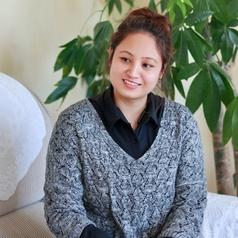
Nita Dyola
Post-doctoral fellow, Département des Sciences Fondamentales, Université du Québec à Chicoutimi (UQAC)
I am currently working as a post-doctoral fellow at the University of Québec at Chicoutimi. In 2023, I was awarded two scholarships; PBEEE/Bourses de court séjour de recherche ou perfectionnement and Mitacs Globalink Research Award, to conduct research in Canada. My research focuses on ecology, covering various aspects such as invasive alien plant species, stoichiometric traits (the ratio of carbon, nitrogen, and phosphorus), functional traits, and their role in ecosystem functioning. I received my doctoral degree in ecology from the Institute of Tibetan Plateau Research at the University of Chinese Academy of Science (UCAS) in Beijing, China. I got a merit scholarship for the doctoral program from the CAS-TWAS President's Fellowship Program for international students in China. During my PhD, I collected intensive field-based data on tree species at a fine scale from tropical to alpine vegetation in the eastern Himalayas. The study focused on the diversity of trees, functional traits, and their role in shaping forest biomass across biomes in the Kangchenjunga landscape. During my master's program, I studied the impact of invasive alien plant species on the regeneration and growth of native plants in Panchase, western Nepal, as part of the EbA (Ecosystem-based Adaptation) project.
Less ![]()
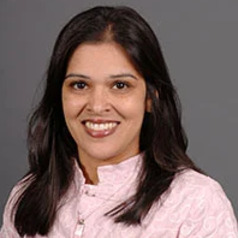
Nita Prasad
Professor of History, Quinnipiac University
Nita Verma Prasad is Professor of History and Director of Asian Studies, specializing in the social history of British colonial India. She completed her undergraduate education at the University of California at Berkeley before obtaining a Master's Degree in Middle Eastern history from Georgetown University and a doctorate in South Asian history from the University of California at Berkeley. She has published on various issues in modern Indian history, including women in the British colonial courts, diasporic communities in the Indian Ocean region, Hindu-Muslim relations on the subcontinent, and intersectional analyses of Bollywood film. She is currently working on a project that examines gender within the context of the British colonial medical establishment in India.
Less ![]()
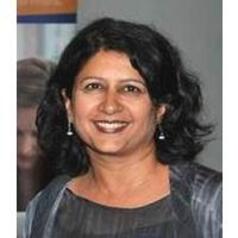
Nitha Palakshappa
Professor of Marketing and Sustainability, Massey University
Nitha Palakshappa is Associate Head of School and Professor of Marketing and Sustainability in the School of Communication, Journalism and Marketing. Her research interests sit broadly within an umbrella of sustainability and social responsibility. Nitha adopts qualitative inquiry to understand how sustainability and responsibility manifest in contemporary systems of production and consumption - with a special interest in the fashion and food sectors. She leads the Centre for Responsibility, Ethics and Sustainability (CRES). CRES provides a forum for business, government and society to understand the importance of ethics, social responsibility, and sustainability initiatives/strategies in enhancing reputation, profitability, and competitiveness.
Less ![]()

Nitin Deckha
Lecturer in Justice Studies, Early Childhood Studies, Community and Social Services and Electives, University of Guelph-Humber
Less ![]()

Nitish Boodhoo
Research Associate, Department of Pathobiology, University of Guelph
Dr. Nitish Boodhoo is a Research Associate in the Department of Pathobiology, Ontario Veterinary College, at the University of Guelph. Dr. Boodhoo is a viral immunologist that specializes in avian immunology, viral transmission studies and next generation vaccine development for application in avian and non-avian species.
Education:
B.Sc - University of Guelph (2010) - animal biology
M.Sc - University of Guelph (2012) - immunology and toxicology
Ph.D - Reading University (2018) - avian immunology
Postdoc - University of Guelph (2019-2022) - avian mucosal vaccine studies
Research associate - University of Guelph (2022-present) - next generation vaccine design for application in chickens
To Date, Dr. Boodhoo has published 28 research/review articles in various areas of microbiology and immunology.
Less ![]()

Niusha Jones
Assistant Professor of Marketing, Boise State University
Niusha Jones is an assistant professor of marketing at Boise State University College of Business and Economics. Her academic research focuses on consumer motivations and the psychology of brand and product design, with a particular interest in the effects of design elements on shaping consumers' feelings, thoughts, and behaviors. Before joining academia, Niusha spent several years working as a marketing researcher, manager, and consultant for leading international companies.
Less ![]()

Niusha Shafiabady
Associate Professor in Computational Intelligence, Charles Darwin University
Associate Professor Niusha Shafiabady is an internationally recognized expert in the field of Computational Intelligence with many years of professional experience in both academia and industry.
She has held various academic leadership positions for the past 15 years. In addition, she has been involved in the Computational Intelligence industry for 23 years as project consultant/manager, associate head of school, Dean, CEO, chief scientific advisor and ethics committee and academic board member. She has held leadership positions, both in academia and industry.
She is the inventor of a European patented optimization algorithm named after herself and is the copyright holder of “Artificial Intelligence Development Solutions”.
She has published many research articles, particularly in Tier 1 journals, supervised more than 11 Higher Degree Research students and has played significant roles in USD3.3M of grants and is the recipient of several awards and credentials. She has been a finalist for Women in AI Award (WAI 2021) in Australia and New Zealand in the category of ‘AI in Defence’, and Women in Innovation (Winnovation 2020) Award in South Australia for developing Ai-Labz.
She has received post-graduate certificate in pedagogy from the University of Nottingham and is a Fellow of the Higher Education Academy of the United Kingdom.
Her key areas of expertise are design and development of smart algorithms for data analysis and interpretation, prediction of different phenomena, clustering and classification of unorganized data and creating smart decisionmaking systems for different applications. The highlight of her work is blending academic knowledge and research findings into industrial applications.
She has created expert decision-making systems for a variety of applications using Artificial Intelligence for solving real-life problems in the following areas:
- Oil & Gas: Pipeline failure detection
- Banking and Finance: Loan repayment prediction
- Transportation: Optimal positioning of police vehicles cameras
- Meteorology: Prediction of wind direction & speed and prediction of flood
- Renewable Energy: Hybrid green energy storage systems
- Economy: Prediction of national investment return
- Environmental Hazards: Power plants explosion and leakage prediction
- Commodity: North Brent crude oil price prediction
- Construction: Crane optimal positioning and maximum load capacity
- Department of Justice: Prediction of rehabilitation of detainees
- Stocks: Prediction of equity prices
3
Niusha Shafiabady, PhD.
Curriculum Vitae
- Healthcare: Prediction of diseases using recorded data
Her expertise includes but is not limited to:
- Artificial Intelligence
- Machine Learning
- Data Analysis
- Modelling
- Deep Learning
- Expert System Design
- Optimization
Her ultimate vision is to utilize her expertise in computational and artificial intelligence for improvement of human
life.
Less ![]()

Niven Winchester
Professor of Economics, Auckland University of Technology
Professor Winchester is passionate about using quantitative analysis to make the world a better place. He is an expert in climate policy analysis using computable general equilibrium models. Using these techniques, he has assisted governments in several countries to develop strategies to reduce greenhouse gas emissions. Professor Winchester built the Climate Policy Analysis (C-PLAN) model used by the Climate Change Commission to provide policy advice for the New Zealand government.
Professor Winchester also has an interest in sports economics. His research on sports ranking systems was the catalyst for the change to the bonus point system in The Rugby Championship and Super Rugby in 2016.
Professor Winchester is also Co-Editor of the Journal of Global Economic Analysis, a Senior Fellow at Motu Economic & Public Policy Research, and a Principal at Vivid Economics. Prior to joining AUT, he was a Principal Research Scientist at the Massachusetts Institute of Technology.
Less ![]()
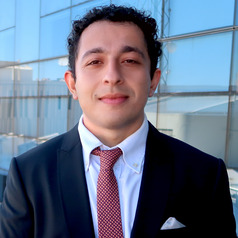
Niyazi Arslan
Ph.D. Candidate in Speech and Hearing Science, Arizona State University
I am Niyazi Arslan, a third-year Ph.D. student in the Speech and Hearing Science program at Arizona State University. I am currently conducting research in the Auditory Implant Laboratory directed by Dr. Xin Luo. I have a sincere interest in the technological applications of hearing science, in particular with cochlear implants (CIs). Making a positive impact on people with hearing loss is the source of my deep motivation for research in this field.
https://niyaziarslan.carrd.co/#
Less ![]()
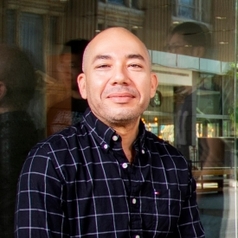
Nizar Bouguila
Professor, Concordia Institute for Information Systems Engineering, Concordia University
Nizar Bouguila is a Professor at the Concordia Institute of Information Systems Engineering at Concordia University in Montreal, Canada. Nizar's research concentrates on machine learning, data mining, computer vision, and image processing.
Less ![]()
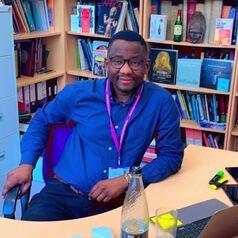
Njabulo Chipangura
Anthropologist and Curator of Living Cultures at Manchester Museum, University of Manchester
Dr. Njabulo Chipangura is an anthropologist and Curator of Living Cultures at Manchester Museum which is part of the University of Manchester. Njabu has interest in empirical ways by which the museum practice can be decolonised through epistemic and aesthetic disobedience benchmarked by undoing earlier ways of knowledge production particularly looking at African collections and their representations. Njabu has published several research papers that looks at ongoing debates around the coloniality of museums and associated knowledge production and representation practices, to imagine a decolonised museum in Africa. His first co-written book entitled Museums as Agents for Social Change: Collaborative Programmes at the Mutare Museum was published by Routledge in April 2021. Njabu sits on the editorial board of Museum International a widely read journal on museum practices and theory which is published Routledge in collaboration with the International Council of Museums (ICOM). He is also a managing editor on Museum and Society published by University of Leicester Open Journals. Njabu is currently working on a co-edited volume entitled The Museologies of Africa: Rethinking African Museums, Community Inclusion, Living Cultures and Decolonisation which will be published by Routledge in 2025.
Less ![]()

Nkiru Nnawulezi
Associate Professor of Community Psychology, University of Maryland, Baltimore County
Nkiru Nnawulezi (she/her) is deeply committed to improving social and material conditions for survivors of gender-based violence who experience structural marginalization and stigmatization, specifically survivors of color, survivors living with HIV, queer and trans* survivors, low-income survivors, survivors who are unhoused, survivors with addictions, and survivors with severe mental health conditions.
Her research is grounded in intersectionality, systems, and empowerment theories and actualized through transformative participatory research methods. Transformative research methods are a set of practices that engage community members in the full research process with the aim to create change that transforms community conditions.
Using these methods, she develops, tests, and evaluates multi-level interventions to improve the effectiveness of various housing programs across the domestic violence housing continuum: crisis shelters, transitional housing, rapid rehousing, and permanent supportive housing. She is primarily interested in how formal housing interventions can be designed to honor survivors' complexity, increase their power, and sustain their healing.
Less ![]()
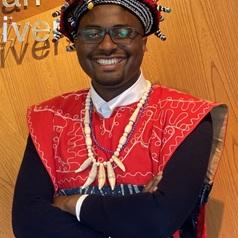
Nkweauseh Reginald Longfor
PhD candidate, Sophia University
Nkweauseh Reginald Longfor, an advocate for inclusive sustainable development, is currently a PhD candidate at Sophia University's Graduate School of Global Environmental Studies in Tokyo, Japan. His academic contributions include published articles in prestigious journals, primarily focusing on the convergence of science, technology, environment, and their social impact. Longfor's work underscores the potential of sustainability and innovation in driving positive transformations within emerging economies. He is particularly interested in sustainability transition, waste management, industrial ecology, the circular economy, and urban sustainability.
His current research focuses on the energy transition using biomass waste in Cameroon, a study that examines the obstacles policymakers face during the waste-to-energy transition. His research initiatives also expose the untapped potential of waste-to-energy utilisation in Sub-Saharan Africa and assess these countries' readiness for a transition to a circular economy. Prior to joining Sophia University, Longfor earned his Master's degree from Ritsumeikan Asia Pacific University (APU) in Japan, where he received the best thesis award. Longfor is passionate about sustainability and believes in the transformative power of science and technology in creating a more sustainable future. He is dedicated to leveraging his expertise to effect positive global change.
Less ![]()
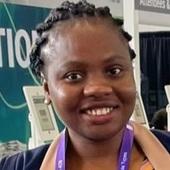

Nnenna Awah
PhD candidate, Department of Food and Nutrition, Sheffield Hallam University
Nnenna Awah is a Doctoral Researcher in Sheffield Hallam University who is currently working on how to optimise the food supply chain through the application of IoT (Internet of Things) and machine learning. Her research is focused on food fraud mitigation to alleviate food insecurity and foster the integrity of the food supply chain using emerging technologies. She is also an Associate Lecturer in the Food and Nutrition Department in Sheffield Hallam University. She has gathered experience in a food research and innovation industry for six years prior to obtaining her Masters Degree in Food Processing Engineering from Teesside University. Her interests include food fraud, food processing, product development, food supply chain, IoT and machine learning.
Less ![]()
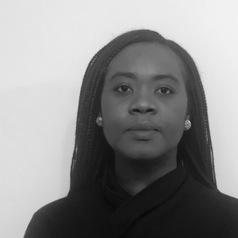
Nnenna Ifeanyi-Ajufo
Professor of Technology Law, University of Bradford
Nnenna Ifeanyi-Ajufo is a Professor of Technology Law at the University of Bradford School Of Law. She is also a Technology and Human Rights Fellow at the Carr Centre for Human Rights Policy at Harvard University for the 2022-2023 academic session. Before joining the University of Bradford, she was an Associate Professor of Law, and the Head of Law at the School of Business and Law, Buckinghamshire New University, United Kingdom. Her teaching and research interests focus primarily on the intersection of law and technology, especially the governance of digital technologies, digital rights, and rule of law in cyberspace.
Nnenna is internationally recognised for her expertise in areas related to law and technology. She has also been actively involved in shaping academic and policy discourses on the governance of digital technologies. She was a member of the International Law Association Steering Committee on Digital Challenges for International Law. The Committee recently delivered a White Paper on Digital Challenges for International Law available at: Digital Challenges for International Law - Ila Paris 2023. She was recently appointed the Chair of the Cybercrime Working Group of the Global Forum on Cyber Expertise (GFCE) and is also a member of the Research Committee of the Global Forum on Cyber Expertise (GFCE). She is the Vice-Chairperson of the African Union Cyber Security Experts Group (AUCSEG) and has been actively involved in advising the African Union Commission (AUC) and African Member States on international, regional and national legal frameworks related to cybersecurity and rule of law in cyberspace, as well as promoting cyber governance in the region.
Nnenna has also been invited to address international organisations, heads of governments and events organised by various foreign ministries and governmental bodies. She presently serves as an African Union delegate to the United Nations Ad Hoc Committee to Elaborate a Comprehensive International Convention on Countering the Use of Information and Communications Technologies for Criminal Purposes and the United Nations Open-Ended Working Group (OEWG) on ICTs. She has written for a range of research projects, journals and media publications, including engaging in various media conversations on issues related to the governance of digital technologies. She has also partnered with various organisations on the delivery of research projects and recently authored a commissioned mapping project on ‘Digital Financial Inclusion’ for the Carnegie Endowment for International Peace, and also authored a commissioned report on the National cybercrime laws of Commonwealth Member States for the Commonwealth Secretariat, United Kingdom. She also serves on the editorial and advisory boards of various academic journals and organisations. She is a member of the Chatham House Cyber Capacity Building Advisory Group, a contributing editor for the ‘Directions’ of the Cyber Direct Project of the European Union Institute for Security Studies, a member of the editorial board of the Commonwealth Cybercrime Journal and a member of the advisory board of the African Journal of Legal Issues in Technology.
Nnenna has served as an expert or consultant for notable organisations such as the Chatham House, the Commonwealth, the African Union Commission and the United Nations Economic Commission for Africa (UNECA). She is presently the lead consultant for the UNECA cybersecurity projects. She also served as a consultant for the Chatham House Africa and Asia-Pacific Programme on Digital Cooperation – 2021-2022. She was invited by the Commonwealth Secretary General to join an Election Pre-Assessment Mission on election technology and cybersecurity in 2022. She has been a recipient of various awards and fellowships. In 2020, she was named amongst 50 Individuals leading Legal Innovation in Africa at the Africa Legal Innovation Awards.
Less ![]()

Nnenna Ike
Research Assistant, Griffith Aviation, Griffith University
Nnenna is an active researcher in the areas of aviation management and technology, organisational risks and resilience, and project management.
Less ![]()
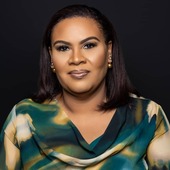
- Market Data





















